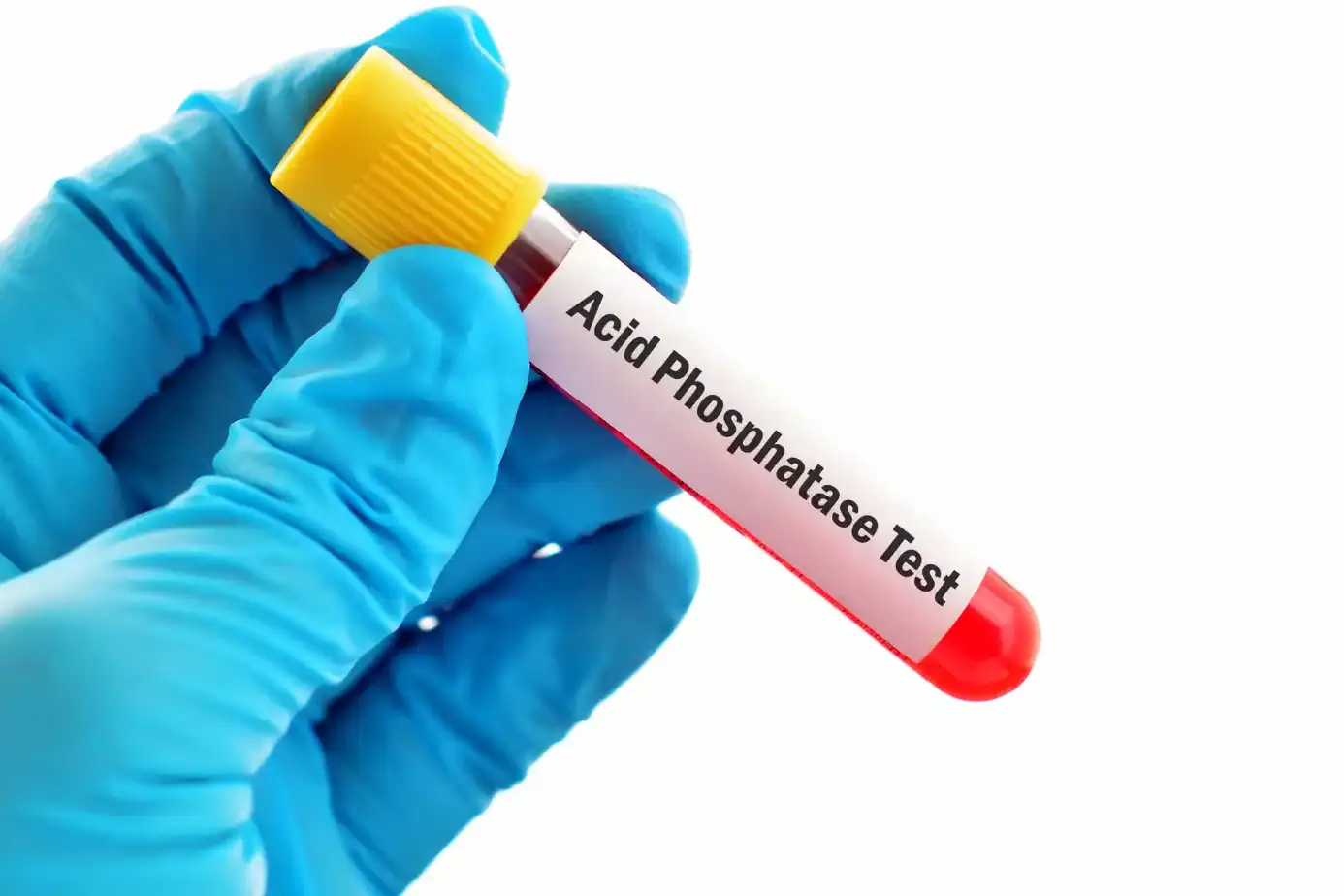Liver cirrhosis is a severe illness that affects how your liver works. Healthy liver tissues turn into stiff scars, making the liver less effective. It’s often caused by long-term damage from things like chronic alcohol abuse and viral hepatitis.
Table of Contents
ToggleThe symptoms of liver cirrhosis vary. They can include tiredness, easy bruising, swelling, and yellow skin and eyes (jaundice). More severe symptoms might include issues with memory, sleep, and unusual changes in men.
To diagnose the disease, doctors use blood tests, scans, and sometimes a liver biopsy. Treatment focuses on the cause, lifestyle changes, and perhaps a liver transplant in severe cases. To prevent it, limit alcohol, treat hepatitis, and live healthily.
It’s key to know about liver cirrhosis if you’re impacted or at risk. With your healthcare team’s help, you can manage your liver health. This way, you can keep living a good life.
What is Liver Cirrhosis?
Liver cirrhosis is a complex condition that makes the liver stiff. The liver processes food and drinks into energy. It also helps in clearing harmful substances from the body.
Over time, the liver may get damaged and form scars. These scars can slow down the liver’s work. This affects how well it can clean the blood and make necessary proteins.
Definition of Cirrhosis
Cirrhosis is a type of liver disease that takes time to develop. It comes from long-term liver damage. As it worsens, the liver starts to work less effectively. This may lead to severe health issues if not managed.
Scarring and Liver Damage
The damage from cirrhosis often cannot be fixed. The liver gets more and more scars. This impacts its ability to work properly. So, its important jobs like cleaning the blood and digesting food are affected.
Irreversible Nature of Cirrhosis
Cirrhosis is usually an advanced liver disease. Sadly, full recovery is rare. But, early treatment can help slow down its harmful effects. So, it’s crucial to take action quickly to protect your liver’s health.
Causes of Liver Cirrhosis
The top reasons for liver cirrhosis are chronic drinking, hepatitis B and C, fatty liver disease, autoimmune issues, and genetic factors. It is key to know what leads to this disease to stop it from happening.
Chronic Alcohol Abuse
Drinking too much and for a long time harms liver cells, causing inflammation and scarring. This is why heavy drinkers have a higher cirrhosis risk.
Viral Hepatitis
Hepatitis B and C can scar the liver, leading to cirrhosis. It’s critical to treat and control these viral infections to prevent cirrhosis.
Non-Alcoholic Fatty Liver Disease
Being obese or having issues like diabetes can cause NAFLD and cirrhosis. Managing these health problems and staying at a healthy weight can lower the cirrhosis risk.
Autoimmune Disorders
When the immune system attacks the liver, it can lead to cirrhosis. Treating autoimmune liver diseases well is a must.
Genetic Disorders
Issues like hemochromatosis and Wilson’s disease can also cause cirrhosis. Finding and handling these genetic diseases can prevent cirrhosis.
Symptoms of Liver Cirrhosis
When liver cirrhosis advances, you might face symptoms that really affect your life. It’s key to know early and advanced signs of cirrhosis. This helps in getting medical help on time and managing the disease well.
Early Signs and Symptoms
At first, liver cirrhosis might not show clear symptoms. But as liver scarring gets worse, you might feel tired, weak, or lose weight. You could also feel sick, see more bruises, or notice swelling in your legs or belly. Don’t ignore these early signs. Tell your doctor about them.
Advanced Symptoms
As cirrhosis gets worse, symptoms can become more dangerous. You might see your skin and eyes turn yellow (jaundice). Other signs could be stomach bleeding, more belly fluid (ascites), confusion (hepatic encephalopathy), or catching infections easily. These signs mean your liver is struggling a lot. You need medical help soon.
Complications of Cirrhosis
Cirrhosis can bring very severe complications. Some can even be life-threatening if not treated. Complications include high blood pressure in the portal vein, varicose veins in the esophagus that may bleed, liver cancer, and kidney problems. It’s crucial to watch and treat these complications if you have cirrhosis.
Diagnosing Liver Cirrhosis
Detecting liver cirrhosis involves several tests. Doctors use blood tests, imaging scans, and liver biopsies. With these, they can find and treat cirrhosis accurately.
Blood Tests
Blood tests are key to diagnosing cirrhosis. They check levels of liver enzymes like ALT and AST. High bilirubin and low albumin levels can also point to cirrhosis.
Imaging Tests
Imaging tests like ultrasound and MRI show the liver’s condition. They look for scarring and changes in the liver. Elastography measures liver stiffness, indicating scarring.
Liver Biopsy
Sometimes a liver biopsy is needed for a firm diagnosis. This test involves taking a small piece of liver for examination. It confirms cirrhosis, shows scarring level, and detects the cause.
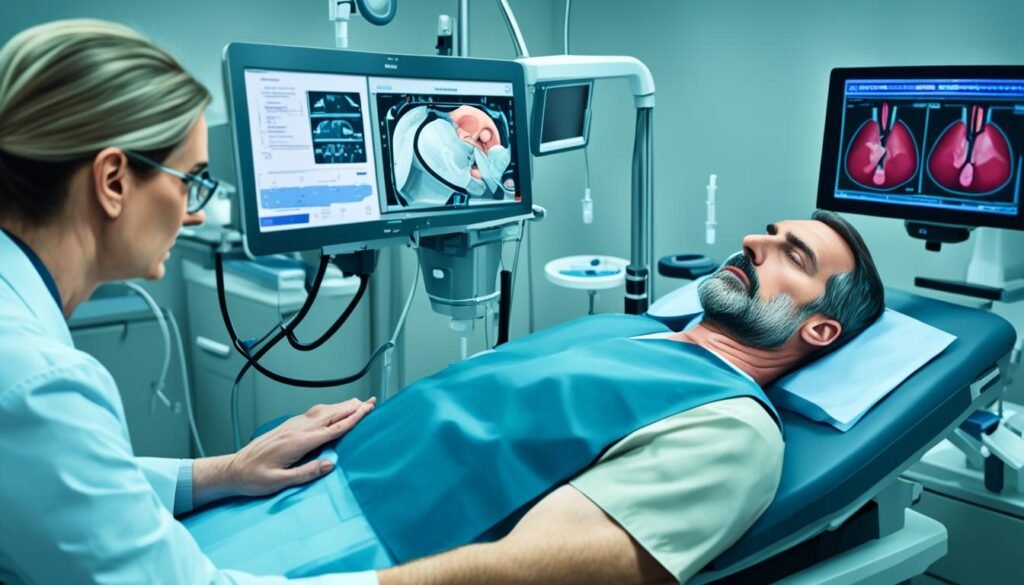
Stages of Liver Cirrhosis
Liver cirrhosis has two main stages: compensated and decompensated. It’s important to know how this liver disease progresses. This helps in managing and keeping track of it.
Compensated Cirrhosis
In the compensated stage, the liver still works well enough to support the body. People might not feel sick because their liver is handling the damage. They can live for more than 12 years with proper care to slow down the disease.
Decompensated Cirrhosis
When the liver gets too scarred, it can’t keep up. This is the decompensated stage. Symptoms like fluid buildup, bleeding, yellow skin (jaundice), and confusion (hepatic encephalopathy) may appear. People’s health is at great risk at this point, and they could develop life-threatening issues within about 2 years.
Complications of Liver Cirrhosis
Liver cirrhosis can cause serious problems that need careful handling.
portal hypertension
This is when the portal vein’s blood pressure is high, affecting the liver. It leads to swollen blood vessels in the stomach and esophagus. These vessels might burst, causing severe bleeding that could be life-threatening.
Ascites, a common issue in cirrhosis, is
ascites
when fluid builds up in the belly. This swelling can make you uncomfortable and have trouble breating. It also raises the chance for infections.
Cirrhosis can damage the brain too, causing
hepatic encephalopathy
. People might feel confused or disoriented with this problem. If not treated, it can be life-threatening.
If you have liver cirrhosis, your chance of getting
liver cancer
like hepatocellular carcinoma (HCC) goes up. The liver’s scarring makes it more likely for tumors to grow.
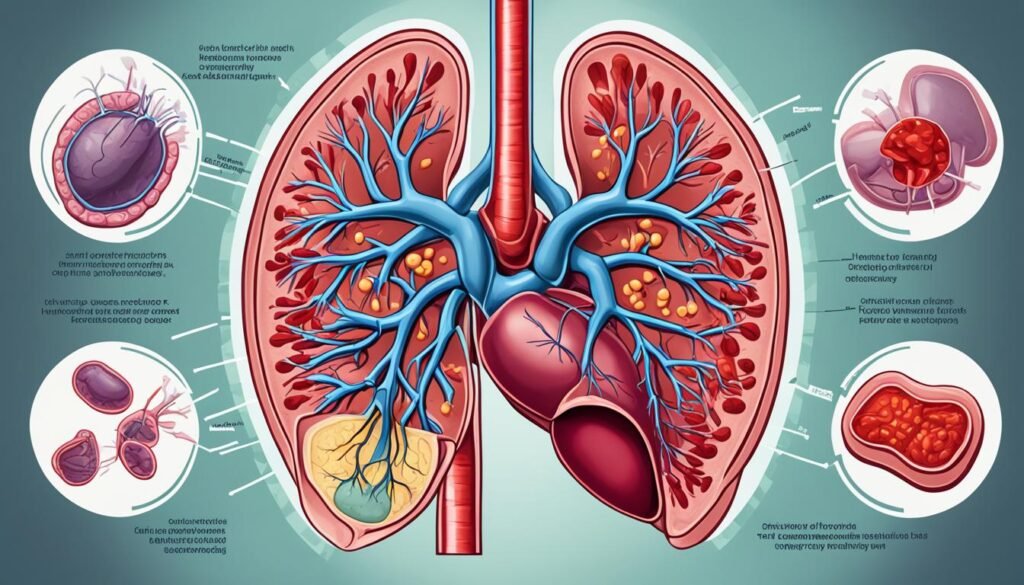
It’s vital to watch these problems closely if you have cirrhosis. Regular doctors visits, tests, and treating issues early on can make a big difference. This care can help those with cirrhosis live better and longer.
liver cirrhosis Treatment Options
The main goals of treating cirrhosis include stopping the disease’s cause, slowing its growth, and enhancing life quality. By dealing with issues like stopping alcohol, handling hepatitis, or managing metabolic problems, you can cut liver damage. This approach is key for slowing down cirrhosis.
Treating the Underlying Cause
For those with alcohol-linked liver problems, the first step is to quit drinking. Doing so can stop more liver damage and tackle cirrhosis. Antiviral drugs can completely cure over 95% of people with chronic hepatitis C in 8 to 12 weeks. If you have nonalcoholic fatty liver disease, losing weight can help reduce liver fat and prevent liver problems. Autoimmune hepatitis and chronic hepatitis B are treated with medications that help the immune system and slow down viruses.
Lifestyle and Dietary Changes
Living well is crucial for those with cirrhosis. This means no alcohol or drugs, eating right, and keeping a healthy weight. It’s important to eat enough protein and calories to protect muscle and stay strong because the liver may not store sugar properly. Remember to eat less salt, around two grams daily, and avoid unproven herbal supplements that could hurt your liver.
Managing Complications
If complications like swelling, ascites, or confusion arise, medications can help. Ascites, seen as a swollen belly or limbs, is often managed with a low-salt diet and medicines called diuretics. Diuretics help release extra body water. To treat cirrhosis-linked confusion, lactulose syrup and sometimes antibiotic rifaximin are used.
Liver Transplantation
Sometimes, when the liver can’t work well anymore due to cirrhosis, a transplant is needed. A liver transplant is the last resort when cirrhosis turns to liver failure. But, those with alcohol-related cirrhosis can’t get a transplant if they continue to drink.
Prevention of Liver Cirrhosis
Stopping liver cirrhosis from happening means tackling the risk factors. For those at risk from too much drinking, cutting down or stopping alcohol is a must. It’s key to get vaccinated for viral hepatitis, especially types B and C. This can stop cirrhosis from these infections. Living healthy with good food, exercise, and handling problems like too much weight or diabetes is vital. This lifestyle can lower the chance of getting a fatty liver or cirrhosis.
Limiting Alcohol Consumption
For people who may get liver cirrhosis from heavy drinking, the way to stop it is clear. Lowering or stopping alcohol use is critical. Alcohol is a major cause of cirrhosis. So, not drinking so much can slow down or stop liver damage.
Hepatitis Vaccination
Hepatitis B and C are big dangers for liver cirrhosis. To lower your risk, get the hepatitis B vaccine. If you have hepatitis C, treating it can also help. These steps can really lower your cirrhosis risk.
Maintaining a Healthy Lifestyle
Living healthily is a strong prevention for liver cirrhosis. A balanced diet, staying active, and keeping obesity and diabetes in check are important. They can prevent a fatty liver from turning into cirrhosis. Focusing on your health can steer you away from this serious liver disease.

Risk Factors for Liver Cirrhosis
Liver cirrhosis is a serious condition affecting one’s health over time. It’s vital to know the main risk factors to prevent and treat it early. The leading causes include heavy drinking, being obese with metabolic disorders, and getting viral hepatitis.
Alcohol Abuse
Drinking too much over time can directly hurt your liver. This harm includes inflammation, scarring, and replacing normal liver with stiff scars. Those who go overboard with alcohol have a high risk of getting alcohol-related cirrhosis.
Obesity and Metabolic Disorders
Obesity, especially alongside type 2 diabetes and NAFLD, can increase cirrhosis risk. When the liver has too much fat, along with metabolic issues, it can get inflamed and scarred. This damage may lead to cirrhosis in obese people.
Viral Hepatitis Infection
Chronic hepatitis B and C are serious viral causes of cirrhosis. These infections can slowly inflame and scar the liver, leading to cirrhosis. People with chronic viral hepatitis face a higher cirrhosis risk.
There are more conditions like primary sclerosing cholangitis that can cause cirrhosis too. Hemochromatosis, Wilson’s disease, and autoimmune hepatitis are also risks. Changing your lifestyle, treating illnesses, and watching your health can prevent cirrhosis.
Living with Liver Cirrhosis
Living with liver cirrhosis comes with big challenges. But, with good care and help, life can still be good. It’s key to keep track of how you feel and get help managing symptoms like fatigue and swelling.
Monitoring and Managing Symptoms
Your medical team will watch your health closely. They will use blood tests and scans to check your condition. They might suggest medicine or diet changes to help you feel better and stop more problems.
Emotional and Psychological Support
Dealing with liver cirrhosis can be tough on your feelings. Talking to a counselor or joining a group can make a big difference. It can connect you with people who know what you’re facing and offer support.
Caregiver Support
Carers are very important for people with liver cirrhosis. They need support too, like a break or help finding information. There are groups just for them, to offer support and understanding.

Liver Cirrhosis and Liver Cancer
Having liver cirrhosis increases the risk of getting primary liver cancer. This cancer is called hepatocellular carcinoma (HCC). The liver’s scarring from cirrhosis makes it more likely to grow cancerous tumors.
Increased Risk of Liver Cancer
A 2011 study showed a higher risk for cancer in people with cirrhosis. This links liver cirrhosis closely to liver cancer. The liver’s scarring leads to a more cancer-friendly environment.
Screening and Surveillance
If you have cirrhosis, your doctor will recommend regular check-ups. These usually include ultrasound and blood tests to catch HCC early. Finding it early greatly improves the chances of beating it.
Treatment Options for Liver Cancer
For those with cirrhosis who get liver cancer, treatment paths vary. Options may include ablation, embolization, radiation, or even liver transplant. The plan depends on cancer stage, patient’s health, and liver function.
Liver Cirrhosis Research and Advancements
In recent years, liver cirrhosis research has made huge strides. This progress brings new hope to patients. Scientists are looking into new ways to treat the disease. They want to find ways to stop and maybe even turn back the scarring that comes with it.
New Treatment Approaches
One major area of research is the search for antifibrotic medications. These drugs aim to combat the processes that lead to liver damage. By doing so, they could slow or stop scarring. This would greatly help manage cirrhosis and improve how patients feel.
Stem Cell Therapy
Stem cell therapy is also a hot study topic for liver cirrhosis. Stem cells can develop into different types of cells, including those for the liver. The idea is to use these cells to grow new, healthy liver tissue. This could make the liver work better in people with cirrhosis. This approach shows promise for turning back the effects of the disease.
Ongoing Clinical Trials
Today, many clinical trials are looking into these new treatments. They’re testing antifibrotic drugs and stem cell therapies. The results of these trials will be key. They will guide how liver cirrhosis is treated in the future. With luck, they might offer new ways to manage and beat the disease.
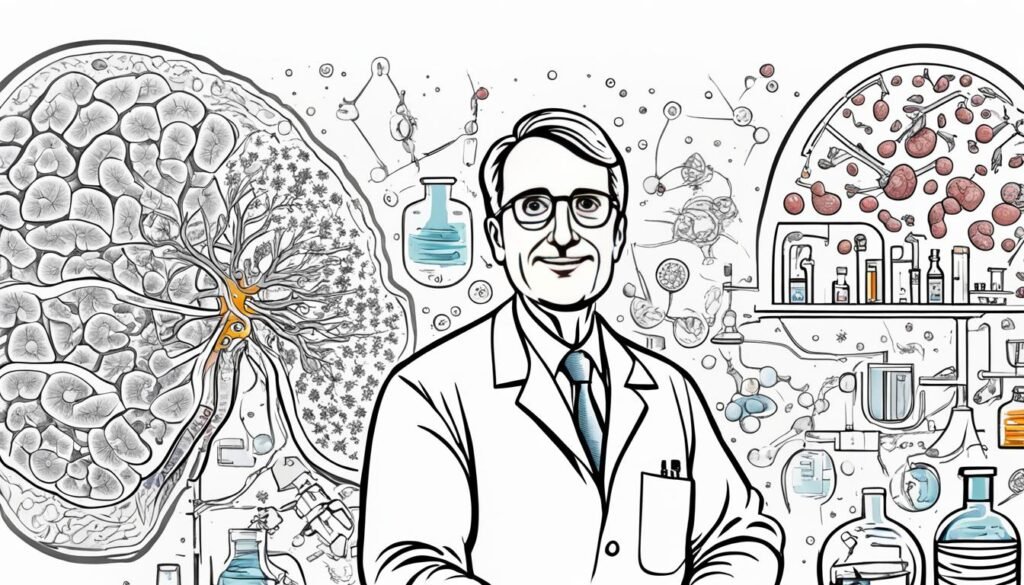
The progress in liver cirrhosis research is due to the hard work of many. As new treatments are developed and tested, there is hope for better ways to manage the disease. It’s important for patients to stay informed and work closely with their doctors. This can lead to better health outcomes and maybe even the reversal of cirrhosis in some cases.
Nutritional Considerations for Liver Cirrhosis
For people living with liver cirrhosis, the right nutrition is key. What you eat and any extra nutrients can help you manage this liver problem. It also keeps your health in check.
Dietary Recommendations
If you have liver cirrhosis, you might reduce how much protein you eat. This lightens the load on your liver. You should focus on eating foods packed with antioxidants. They help fight inflammation. And a diet that’s not too heavy on the calories is important for your overall well-being.
It’s a myth that you should eat very little protein to avoid brain issues (hepatic encephalopathy). In truth, enough protein is needed to stop muscle loss. It’s a big issue for those with liver cirrhosis. Varying your protein sources is a good idea. This includes beans, nuts, and lean meats.
Try to stay away from too much fructose, like in sugary drinks. And cut down on omega-6 fats if your liver issues are linked to alcohol. Eating too much can also cause liver problems. This can make conditions like fatty liver disease and cirrhosis worse.
Supplements and Vitamins
If you have liver cirrhosis, you might not be getting enough micronutrients. This includes zinc, magnesium, and some vitamins. Adding a 700 calorie snack before bed can help. Taking multivitamins or specific nutrients like zinc might be needed too.
But, it’s important not to overdo it with certain nutrients, like vitamin A and selenium. Some people with liver cirrhosis use milk thistle. But, be careful. Some herbal supplements might not be good for your liver.
It’s smart to talk to a healthcare professional or a dietitian. They can help you make a plan that meets your needs. This plan can help keep your liver and your body healthy.
Liver Cirrhosis in Children
Liver cirrhosis is not just an adult’s problem. It can also happen to kids. Cirrhosis in children is often because of different reasons than in adults. It can be due to birth liver issues, illnesses caught young, and metabolic problems.
Causes and Risk Factors
Many liver issues can lead to cirrhosis in kids. These include conditions like Hepatitis B, Hepatitis C, and others. Figuring out the real reason is key to treating it well in children.
Diagnosis and Management
Doctors might use various tests to find cirrhosis in children. These could include blood tests or liver scans. Once it’s found, the goal is to treat the cause, help the liver, and avoid problems. This might mean changing what a child eats or even a transplant.
Long-term Outlook
How well a child does with cirrhosis depends on many things. This includes the cause and how bad the liver is. With the right care, many can stay pretty healthy and manage their cirrhosis. Regular checks with doctors are a must for their best shot at a good life.
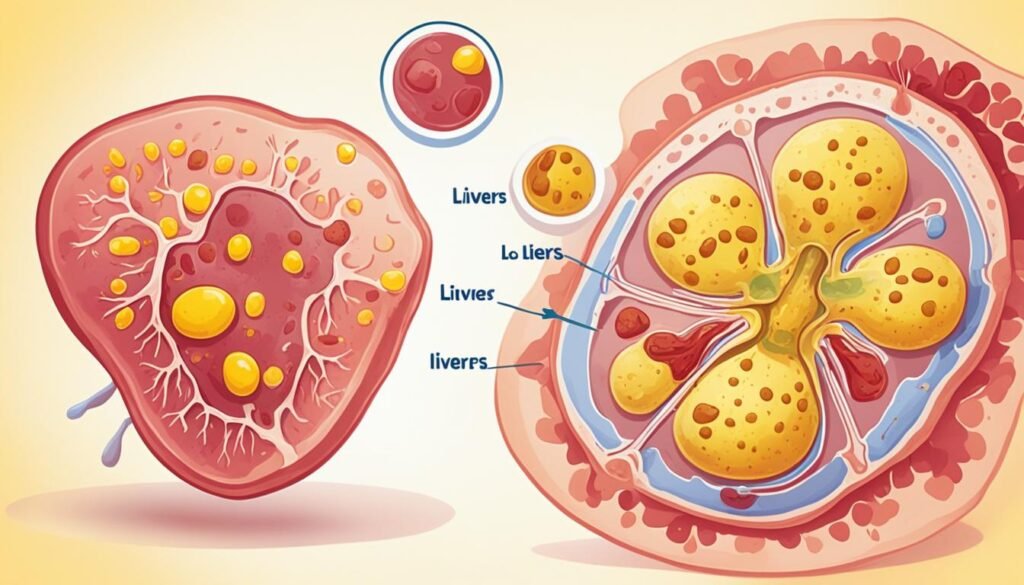
Conclusion
Liver cirrhosis is a serious and ongoing health issue. It can really affect your life and health. Knowing what causes it, its symptoms, and the treatments available is very important. This will help you or your loved one cope with the disease.
Liver cirrhosis can’t be cured, but with early diagnosis, dealing with the root cause, and good management, its progress can be slowed and outcomes improved. Research and medical progress offer hope for better care and even the chance to reverse cirrhosis in some cases. By teaming up with your healthcare providers and taking a proactive stance towards your health, you can manage cirrhosis. Doing so will help you keep the best possible quality of life.
Liver cirrhosis is a major issue, leading to many deaths in the U.S. and across the globe. In 2011, the CDC found that it was the 12th biggest reason for death in the U.S. About 10.8 out of every 100,000 deaths were due to cirrhosis.
Understanding its causes, symptoms, and treatments is key. This knowledge allows you to be active in managing cirrhosis and boosting your health and happiness.
While liver cirrhosis is serious, the future looks hopeful. With more research and better medical treatments, managing cirrhosis is getting better. By working closely with your healthcare team and being proactive about your health, you can improve your life with cirrhosis. Remember that with proper care and support, you can live a full life even with this tough condition.
FAQ
What is liver cirrhosis?
Liver cirrhosis changes the liver’s healthy parts to scar tissue. This reduces the liver’s function.
What causes liver cirrhosis?
Chronic alcohol abuse is a major cause. Other causes include viral hepatitis, non-alcoholic fatty liver disease, autoimmune disorders, and genetic conditions.
What are the symptoms of liver cirrhosis?
Being tired, weak, or losing weight are early signs. You might also feel nauseous, bruise easily, or swell up. As it gets worse, symptoms can be yellow skin, bleeding, fluid collecting, and confusion.
How is liver cirrhosis diagnosed?
Doctors diagnose cirrhosis with blood tests, imaging tests, and sometimes, a liver biopsy.
What are the stages of liver cirrhosis?
There are two stages: Compensated cirrhosis can still manage some functions. Decompensated cirrhosis has severe issues because the liver can’t cope anymore.
What are the potential complications of liver cirrhosis?
Complications might include high blood pressure in the liver, fluid buildup, bleeding, brain issues, and a higher chance of getting liver cancer.
How is liver cirrhosis treated?
Treatment focuses on the cause, handling complications, and sometimes, liver transplantation in severe cases.
How can liver cirrhosis be prevented?
Preventing cirrhosis involves controlling alcohol, treating hepatitis, staying healthy, and managing obesity and diabetes.
What are the risk factors for developing liver cirrhosis?
The main risk factors are heavy drinking, obesity, metabolic disorders, and hepatitis infections.
How can individuals with liver cirrhosis improve their quality of life?
Managing symptoms, getting support, and help from caregivers can improve life for those with cirrhosis.
Is there a link between liver cirrhosis and liver cancer?
Having cirrhosis greatly raises the chance of getting liver cancer, known as hepatocellular carcinoma.
What are the latest advancements in liver cirrhosis research?
Researchers are looking into new treatments like antifibrotic drugs and stem cell therapy to help slow or stop liver scarring.
How important is nutrition for individuals with liver cirrhosis?
Eating the right food and using supplements is key for liver health and general well-being for those with cirrhosis.
Can children develop liver cirrhosis?
Yes, children can get cirrhosis too. This is rare and can be because of birth liver diseases, metabolic issues, or early infections.
Source Links
- https://www.webmd.com/digestive-disorders/understanding-cirrhosis-basic-information
- https://www.mayoclinic.org/diseases-conditions/cirrhosis/symptoms-causes/syc-20351487
- https://my.clevelandclinic.org/health/diseases/15572-cirrhosis-of-the-liver
- https://www.mayoclinic.org/diseases-conditions/cirrhosis/diagnosis-treatment/drc-20351492
- https://www.niddk.nih.gov/health-information/liver-disease/cirrhosis/diagnosis
- https://www.hepatitis.va.gov/cirrhosis/background/how-to-diagnose.asp
- https://www.hepatitis.va.gov/cirrhosis/background/stages.asp
- https://umiamihealth.org/treatments-and-services/hepatology/complications-of-cirrhosis
- https://www.ncbi.nlm.nih.gov/pmc/articles/PMC4017060/
- https://www.niddk.nih.gov/health-information/liver-disease/cirrhosis/treatment
- https://www.nhs.uk/conditions/cirrhosis/treatment/
- https://www.ncbi.nlm.nih.gov/pmc/articles/PMC3583179/
- https://britishlivertrust.org.uk/information-and-support/liver-conditions/cirrhosis/
- https://www.ncbi.nlm.nih.gov/pmc/articles/PMC7756679/
- https://www.ncbi.nlm.nih.gov/pmc/articles/PMC5070280/
- https://www.ncbi.nlm.nih.gov/pmc/articles/PMC9104939/
- https://www.ncbi.nlm.nih.gov/pmc/articles/PMC5114497/
- https://britishlivertrust.org.uk/information-and-support/living-with-a-liver-condition/diet-and-liver-disease/cirrhosis-and-diet/
- https://www.ncbi.nlm.nih.gov/pmc/articles/PMC6657019/
- https://www.chp.edu/our-services/transplant/liver/education/liver-disease-states/cirrhosis
- https://www.uspharmacist.com/article/liver-cirrhosis-a-review
- https://www.ncbi.nlm.nih.gov/pmc/articles/PMC2271178/
- https://www.sciencedirect.com/topics/medicine-and-dentistry/liver-cirrhosis
About The Author

Medically reviewed by Dr. Nivedita Pandey, MD, DM (Gastroenterology)
Senior Gastroenterologist & Hepatologist
Dr. Nivedita Pandey is a U.S.-trained gastroenterologist and hepatologist with extensive experience in diagnosing and treating liver diseases and gastrointestinal disorders. She specializes in liver enzyme abnormalities, fatty liver disease, hepatitis, cirrhosis, and digestive health.
All content is reviewed for medical accuracy and aligned with current clinical guidelines.
About Author | Instagram | Linkedin





